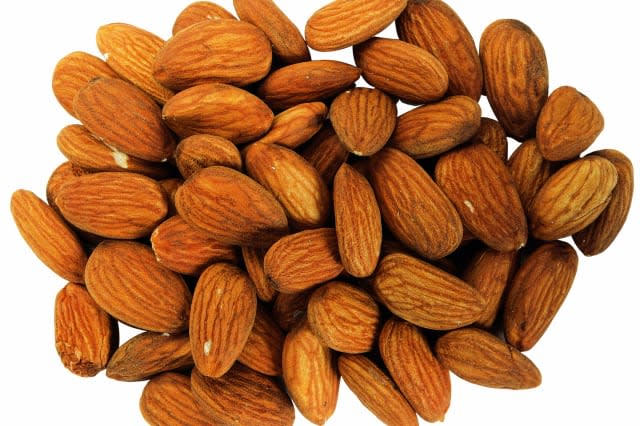Eight foods to help ward off colds and flu


With cold and flu season soon approaching, now is the perfect time to give your body's immune system a boost. Here are seven foods to eat to help keep the sniffles away...
See also:People with poor sleep 'four times more likely to catch a cold'
See also: 'Holy Grail' of universal flu vaccine soon within reach, say scientists
1. Almonds
Nuts are packed with health benefits – but research suggests that almonds are best at helping the body fight off viral infections, including the common cold and flu.
The skin of the nut contains naturally-occurring chemicals which help white blood cells to detect viruses and so prevent them from replicating and spreading inside the body. Not only that, one Anglo-Italian study found that eating a handful of almonds regularly could help ward off viruses and speed up recovery for those already infected.
2. Zinc
The trace mineral zinc plays an important role in helping to support your immune system. One recent study found that people who took zinc lozenges as soon as cold symptoms started recovered faster than those who did not.
Oysters are the richest natural source of zinc. Other good sources include dried apricots, lamb, beef, oysters, prawns, milk, cheese, wholemeal bread, wheat germ, spinach, cashew nuts and mushrooms.
3. Vitamin D
You know that the sunshine vitamin is important for strong bones and teeth, but did you know that vitamin D also helps to keep the sniffles at bay? Research shows that vitamin D strengthens the body's immune system and is able to 'trigger and arm' the body's T cells to attack invaders and fight infection.
Exposure to the sun is the best way to keep your levels topped up, but in winter it may be worth taking a vitmain D supplement and eating more vitamin-D rich foods. Good sources include salmon, sardines, eggs and fortified breakfast cereals, breads and spreads.
4. Oily fish
Oily fish, such as mackerel, sardines and salmon, aren't just good for your heart and brain health – they can also give your immune system a boost. Don't like fish? Take an Omega-3 fatty acid supplement or try adding a couple of teaspoons of raw flax oil to your regular foods.
5. Pumpkins
Fresh fruit and vegetables are the best source of powerful antioxidant vitamins and minerals that will help to boost your immune system. If eating salads is less-than appealing, enjoy hearty, warming dishes like soups, stews and curries – just pack them full of colourful fruit and vegetables.
Pumpkins are a good choice as they're high in vitamin A, which is great for boosting immunity and fighting off infections. If you don't fancy pumpkin pie, snack on a handful of the dried seeds. As well as being high in dietary fibre, they're an excellent source of zinc and mono-unsaturated fatty acids to keep your heart healthy.
6. Probiotic yoghurt
Some health experts claim that 80 per cent of our immune system is located in our gut, so it's important to keep your intestines healthy. One way is to eat probiotic foods like natural yoghurt, have a specially-formulated one-a-day probiotic drinks or take a probiotic supplement.
7. Blackberries
When it comes to choosing fruit to eat with your probiotic yoghurt, opt for blackberries. Packed with vitamin C, they have one of the highest levels of disease-fighting antioxidants of all fruits.
8. Garlic
Garlic has been known for its protective properties for centuries, and studies show that the pungent food can help stimulate the body' infection-fighting white cells, and so help to ward off colds and flu – as well as vampires!



